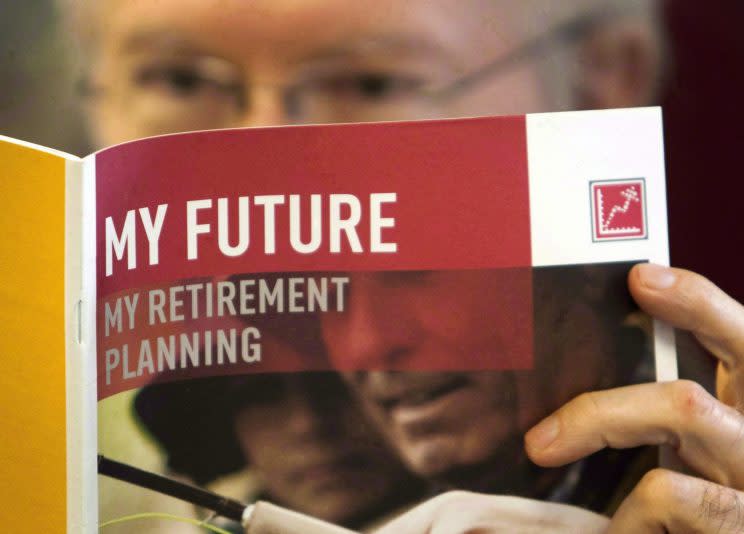Nearly half of Canadians worry about outliving their retirement savings

If you’re worried about not having enough money saved for the course of your retirement, you’re not alone.
A new survey conducted by Franklin Templeton Investments has found that 49 per cent of Canadians under the age of retirement are concerned about outliving their savings or having to make “major sacrifices” in their post-work years.
The study, which was conducted by market researcher ORC International, asked more than 2,000 Canadians, as well as another 2,000 of their counterparts from south of the border, about their retirement strategies and expectations.
Overall, it found that nine in 10 Canadians who have yet to retire are concerned about the potentially high costs associated with post-work life.
“The concern about expenses appears to be well founded, as over one-third (39 per cent) of Canadians, who are 11 or more years into retirement, said their overall expenses have increased since they retired,” Duane Green, president and CEO of Franklin Templeton Investments Canada, said in a press release.
Their main worries (20 per cent) seem to be related to the health care and lifestyle expenses.
“Although Canadians benefit from coverage for doctor and hospital visits, health care expenses are still a top concern because seniors face the prospect of rising costs for long-term care and prescription drugs as lifespans continue to increase,” said Green.
This echoes findings that indicate that one in 12 Canadians over the age of 55 are avoiding filling prescriptions because they can’t afford to.
A great deal of Canadians (67 per cent) even get stressed out thinking about saving for retirement, according to the survey.
While that number represents a five per cent drop from its 2016 survey, the investment service company said Canadians shouldn’t let short-term market volatility distract them from their savings plan.
“The modest decline in stress and anxiety levels is good news, but it may be a case of recency bias, which is when investors focus largely on recent results. Canadians might have been looking back at the S&P/TSX composite index over the past year and seeing a return of 18 per cent in 2016,” said Matthew Williams, senior vice-president of Franklin Templeton Investments Canada.
“In contrast, when they looked back on 2015, the same Canadian equity benchmark had fallen 11 per cent.”
Perhaps the most “troubling” finding is that a significant chunk of Canadians haven’t even saved for retirement.
The survey found that 15 per cent of pre-retiree baby boomers and a quarter of Generation Xers haven’t put aside any funds for their post-work years.
A study by the Broadbent Institute put out last month found that half of Canadian couples between 55 and 64 have no employer pension, and of those, less than 20 per cent of middle-income families had saved enough in addition to their government benefits and pension plan.
Research released in early February also found that 38 per cent of Canadians have been forced to dip into their RRSPs. Many of them did so to cover the costs of buying a new home, living expenses, paying off debt and emergencies.
These financial burdens may be why 65 per cent of Canadians are considering working during retirement, and 19 per cent of baby boomers, who have yet to retire, expect employment to be their primary source of income once they do.
Saving for retirement is also proving difficult for many millennials, as only half of them have started saving.
And, in fact, more than 40 per cent of them expect to rely on inheritance as a source income after they stop working, compared to just 26 per cent of baby boomers.
Still, Canadians should perhaps listen to the advice from those who know the trials of retirement first-hand.
When asked to give their top piece of saving advice, more than 73 per cent of retirees said “save early, save often and save consistently.”

 Yahoo Finance
Yahoo Finance 
